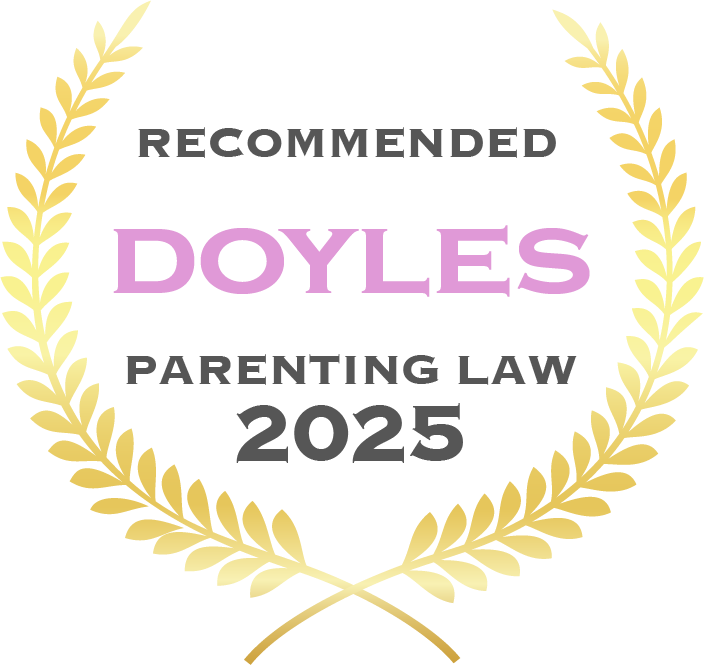
What Happens If a Parenting Order Is Breached?
What is a Children’s Order?
When parents separate, the Federal Circuit and Family Court of Australia can make parenting orders (often called children’s orders) that dictate who a child lives with, spends time with, communicates with or any other aspect of their care. These orders are legally binding whether they arise from agreement (consent orders) or after a defended hearing, and they remain in force until varied or discharged by a court. Under section 70NAC of the Family Law Act 1975 (Cth) a parent, guardian or anyone else bound by a parenting order must not act inconsistently with it, nor must they fail to do something the order requires.
Take Decisive Action, Speak with Stanley & Co Lawyers Today
If you are worried that your children’s orders have been breached, or you have been served with a contravention application, then prompt, informed advice can make all the difference.
Stanley & Co Lawyers are Adelaide-based family-law specialists with deep expertise in parenting compliance and enforcement. We cut through the jargon, explain your rights in plain English, and fight tenaciously for a result that keeps your child’s best interests front and centre.
Call us on 08 7001 6135 to book your complimentary, 30-minute no-obligation consultation with an expert family lawyer. Timely advice now can spare you months of stress, unnecessary expense and, most importantly, protect your child’s stability.
Helpful Questions & Answers
Heading 1
Heading 2
Heading 3
Heading 4
Heading 5
Heading 6
Lorem ipsum dolor sit amet, consectetur adipiscing elit, sed do eiusmod tempor incididunt ut labore et dolore magna aliqua. Ut enim ad minim veniam, quis nostrud exercitation ullamco laboris nisi ut aliquip ex ea commodo consequat. Duis aute irure dolor in reprehenderit in voluptate velit esse cillum dolore eu fugiat nulla pariatur.
Block quote
Ordered list
- Item 1
- Item 2
- Item 3
Unordered list
- Item A
- Item B
- Item C
Bold text
Emphasis
Superscript
Subscript
Your Obligations Under a Parenting Order
Once the order is made, every named party is obliged to:
- positively comply – do what the order says (for example, deliver the child for change-over on time); and
- avoid interference – refrain from actions that make it difficult or impossible for the other parent to exercise their time or responsibilities.
A breach can occur through action (e.g. unilaterally keeping the child an extra night) or inaction (e.g. failing to put the child on a plane as agreed).
What Counts as a Contravention?
The Act identifies four broad ways to contravene an order (s 70NAC):
- Intentional breach – doing the opposite of what the order requires.
- Resulting breach – actions that indirectly prevent compliance (for example, scheduling events that clash with hand-over).
- Aid and abet – assisting someone else to breach.
- Failure to make a reasonable attempt – not taking genuine steps to comply.
Where a party believes the other has breached, an application for contravention proceedings can be filed. The court must then determine, on the balance of probabilities (s 70NAE), whether a contravention occurred and, if so, what remedy is appropriate.
Reasonable excuse – when non-compliance may be defensible
The legislation recognises that life can throw up genuine barriers to strict compliance. Section 70NAD sets out what amounts to a reasonable excuse, including:
- believing on reasonable grounds that the breach was necessary to protect the child or another person’s safety;
- circumstances where you did not understand the order; or
- situations outside your control (for instance, a medical emergency or aviation cancellation).
Importantly, you must prove that you acted for the shortest practicable time consistent with the child’s safety. If the court accepts the excuse, no penalty will be imposed, but it may adjust the order to avoid future conflict.
Consequences of Breaching a Children’s Order
When a breach is proved and no reasonable excuse exists, the range of court responses escalates in seriousness (Subdivision B & C):
- Make-up time – an order that the child spend additional time with the deprived parent (s 70NBB).
- Varying or suspending the existing order – the court can rewrite practical arrangements to prevent repeat problems (s 70NBC).
- Attendance at a post-separation parenting programme – compulsory courses designed to improve co-parenting communication (s 70NBD).
- Bond, fine or community service – for more serious or repeated breaches (ss 70NBF, 70NCA).
- Imprisonment – reserved for persistent, wilful defiance (up to 12 months for a second or subsequent serious contravention).
In addition, the court can order the contravening party to pay the other parent’s legal costs and any losses reasonably incurred (for example, wasted airfares). A record of contravention may also influence future applications to alter parental responsibility.
How the Court Decides Which Penalty to Impose
Judges weigh:
- seriousness and frequency of the breach;
- impact on the child – disruption, distress or safety risk;
- co-operation shown afterwards – prompt apologies or offers of make-up time; and
- any prior history – a pattern of minor infringements can elevate the response.
The objective is not punishment for its own sake but to secure ongoing compliance so the child’s routine, and relationship with each parent, is protected.
Practical Steps if you Believe an Order has Been Breached
- Document everything – keep messages, flight details, school notes or witness statements.
- Communicate respectfully – propose make-up time in writing; reasonable overtures can help you later on costs.
- Consider mediation – many misunderstandings resolve quickly with a neutral facilitator.
- Act promptly – file a contravention application before memories fade.
- Get legal advice early – strategic guidance often prevents escalation.
If you are the accused party, don’t ignore the application. Gather evidence supporting any reasonable excuse (medical certificates, police reports, travel documentation) and seek legal representation.
Why Professional Advice Matters
Contravention proceedings are procedurally technical. Choosing the wrong box on the application form, mis-citing sections or failing to serve documents correctly can see your case dismissed or costs awarded against you. An experienced family lawyer will:
- assess whether you have sufficient evidence to bring (or defend) a contravention;
- explore negotiated solutions that preserve co-parenting goodwill;
- prepare persuasive affidavit material focusing on the statutory tests in ss 70NAC–70NAE; and
- appear in court to argue for an outcome that protects your child’s routine and your legal interests.
27
Combined Years Of Experience
Awards & Affiliations







.png)




.png)


.png)


.png)








